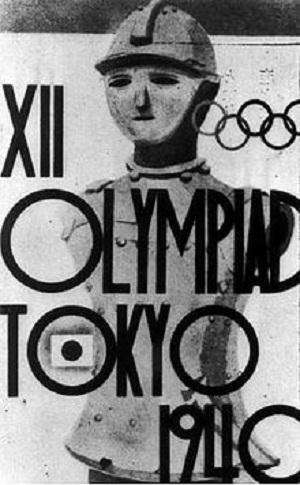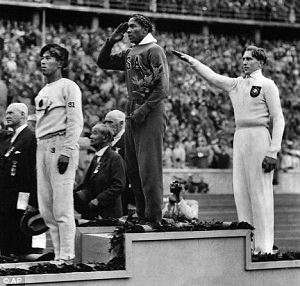4 Shameful Moments in Olympics History
From Berlin to Munich and beyond, terror and tragedy at the Summer Games.

The Olympics aren't just fun and games. There's also debt and, sadly, death. Before we get to 4 scandals for which the Summer Games are infamous, here's a short history of the modern Olympics.
The first modern Olympics were held in 1896 in Athens; they were cooked up by a French nobleman interested in regaining honor for his country after its defeat in the Franco-Prussian War; when the games came back to Greece in 2004, the country's spending binge on Olympics preparation helped drive them into debt. The 1904 Olympics were supposed to be in Chicago, but in a bit of a role reversal the city got strong-armed by St. Louis World's Fair organizers and the Olympics were moved to Missouri.
The first modern Olympics to be canceled due to war were the 1916 Berlin Games. Though Germany was banned from the subsequent 1920 and 1924 Olympics after losing World War I, they were awarded the 1936 Olympics, which Adolf Hitler used to showcase the rise of his Nazi Party to political power. The flame from the 1936 Olympics never made it to Tokyo, which was awarded the 1940 Olympics. Imperial Japan backed out of the Olympics, because they were getting ready for war. The games were moved to Helsinki, but the outbreak of World War II meant a second cancellation.
The 1944 Olympics in London, scheduled just months before Germany invaded Poland in 1939 and started World War II, were also cancelled. The summer games were held in London when they resumed in 1948 instead. Because of post-war conditions, the 1948 Olympics were called the "Austerity Games." Athletes were asked to bring their own towels; lest you think the current London Games, too, are in an age of austerity, they include 150,000 free condoms for the Olympic Village. In 1948, things were so tough that there was no Olympic Village.
After the Soviet Union invaded Afghanistan in 1979, the U.S. boycotted the Summer Olympics when they were held in Moscow in 1980. The Soviets led a counter-boycott when the Games were held in 1984 in Los Angeles. Peter Ueberroth saved those Olympics, with the help of the Chinese, but unlike Mitt Romney, he never ran for president.
NEXT: About that Atlanta Bomber…
4. Trial by media for hero in Atlanta bombing
On July 27, 1996, a week into the Summer Olympics, a security guard found a suspicious package at Centennial Olympic Park and alerted state law enforcement. This being before the days of "see something, say something," the media jumped on the security guard, Richard Jewell, as the likely suspect—based on word that the FBI was treating him as a "person of interest." The media frenzy led to lawsuits by victims of the bombing (it killed one and injured 11) against Richard Jewell. Domestic terrorist Eric Rudolph was eventually charged with and sentenced for the crime, after bombing two abortion clinics in the Atlanta area in 1997, and Jewell sued both the Atlanta Journal-Constitution and NBC News, the network which happens to have held exclusive U.S. broadcast rights for the Olympics since 1988.
NEXT: Black Power Out in 1968
3. Silent protest yields expulsions

The 1968 Olympics in Mexico City yielded one of the most iconic photographs of that entire turbulent decade, when American athletes Tommie Smith and John Carlos displayed a black power salute after finishing first and third in the men's 200 meter sprint. Though it's harder to see in the pictures, all three athletes on the medal stand wore Olympic Project for Human Rights badges, the suggestion of the Australian athlete, Peter Norman, who opposed his country's "White Australia" policy. This being the 1960s, the simple silent protest against racial discrimination was just too much for the International Olympics Committee (IOC) and its chief, the American Avery Brundage.
The IOC described the incident (pictured, nearly in its entirety, to the right) as a "violent breach" of Olympic principles. Smith and Carlos were sent home two days after the whole U.S. team was threatened with expulsion. To his death, Norman was ostracized at home for his decision to participate; he wasn't even included in the 2000 Sydney Olympics. And in case it wasn't obvious, the IOC chief that flipped out was a racist—he was around to marvel at Hitler's display of power at those Berlin Olympics in 1936.
NEXT: The Nazi Salute's OK Though!
2. Nazis on parade at the 1936 Olympics

Lest you need a reminder of how accepted Nazism was in the West as it emerged as Germany's political leadership, the 1936 Berlin Olympics had the most nations participating in the Olympic games to that date. The Nazis came to power after Berlin had been selected to host the 1936 Olympics, but Adolf Hitler wanted to use the games as an occasion to display Aryan supremacy. Jesse Owens famously disproved Hitler's racist notions early and often in the games, with Hitler refusing to congratulate any athlete if he couldn't only congratulate Aryans. There were calls in the United States to boycott the Olympic games, but it was vehemently opposed by the U.S. Olympic Committee chief at the time, none other than Brundage, who insisted Jewish athletes would be treated fairly in the games, that the Olympics belonged to athletes, not politicians, and that the effort to boycott the Olympics were part of a "Jewish-Communist conspiracy." Brundage, who watched the Games from Hitler's personal box, had no problem with the Nazi salute and there are persistent charges that he orchestrated the removal of Jewish runners from the track team. The travesty that was the 1936 Berlin Olympics only makes what happened in Germany 36 years later that much more shameful.
WORST: The Munich Massacre
1. The 1972 Munich Olympics massacre
The 1972 games, held in Munich, were consciously designed as a historical counter to the Berlin games of 1936. These were to be "the Happy Games," meant to replace the awful memories of Nazi salutes and Aryan race-baiting.
They were anything but happy. Palestinian terrorists aided by German neo-Nazis kidnapped members of the Israeli Olympic team, holding them hostage before killing 11 athletes and coaches. Several of the terrorists were killed in a botched German rescue attempt, and three more were released just months later in exchange for a hijacked airliner. Earlier this year, Der Spiegel reported that German authorities received a tip a month before the Munich massacre warning of a terrorist incident. Security at the Olympic Village was laughably weak.
After the massacre, IOC head Avery Brundage announced to a stadium full of athletes, dignitaries, and other spectators that, after a day of mourning, "the Games must go on." During his remarks, Brundage likened the murder of athletes to a successful move to bar apartheid Rhodesia from participating in the Olympics. "The Games of the XXth Olympiad have been subject to two savage attacks," said Brundage to a disbelieving crowd. "We lost the Rhodesian battle against naked political blackmail."
As for anti-Semitism, it's still alive and well at the Olympics. Though the 2012 London Olympics mark the 40th anniversary of the Munich massacre and the opening ceremonies had time to celebrate the National Health Service and Welsh contributions to British culture, not a moment of silence could be spared for the most violent event in Olympics history. And, faced with an Olympic rule against avoiding competitors based on nationality, a top Iranian judo competitor withdrew from a competition in which he might have faced an Israeli athlete.


Show Comments (35)